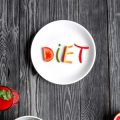Understanding the Ageing Process in the UK
Ageing is a multifaceted phenomenon shaped by both biological and social influences, and its impact is particularly significant within the context of British society. The United Kingdom, like many developed nations, is experiencing notable demographic shifts: the Office for National Statistics reports that over 18% of the UK population is now aged 65 or above, with projections indicating continued growth in this segment. This trend poses unique challenges and opportunities for public health initiatives and policy planning.
From a biological standpoint, ageing is characterised by gradual changes at cellular and systemic levels, leading to declines in physiological function and increased vulnerability to chronic conditions such as cardiovascular disease, diabetes, and dementia. Nutrition plays a pivotal role in modulating these age-related changes, influencing everything from immune resilience to cognitive health.
On the social front, the British ageing population often faces issues related to isolation, economic insecurity, and disparities in access to healthcare. The NHS and various local councils have prioritised healthy ageing strategies that emphasise prevention and early intervention. At the same time, cultural attitudes towards ageing are evolving; there is growing recognition of the value older adults bring to communities across England, Scotland, Wales, and Northern Ireland.
The intersection of nutrition, lifestyle choices, and public policy is therefore critical when considering how best to support healthy ageing in the UK. By understanding both the biological mechanisms at play and the societal context unique to Britain, we can better appreciate why targeted nutritional interventions are increasingly recognised as essential components of national health strategies.
2. The Science Behind Nutrition and Healthy Ageing
Understanding how nutrition influences the ageing process requires a deep dive into the science of how specific nutrients interact with our bodies as we grow older. In recent years, UK-based and global research has underscored the critical role of diet in modulating physiological functions central to healthy ageing, including cognitive performance, cardiovascular health, bone density, and immune response.
The Ageing Body: Key Functions Affected by Nutrition
As we age, several bodily systems undergo changes that can be influenced by dietary intake. Nutrient-rich diets have been shown to mitigate or delay some of these effects:
| Bodily Function | Key Nutrients | Scientific Findings (UK/Global) |
|---|---|---|
| Cognitive Health | Omega-3 fatty acids, B vitamins, antioxidants | A 2023 study from University College London found that regular consumption of omega-3s is linked to slower cognitive decline in older adults. |
| Bone Density | Calcium, Vitamin D, Vitamin K | Research by the National Osteoporosis Society highlights that adequate vitamin D intake significantly reduces fracture risk in the UK’s elderly population. |
| Cardiovascular Function | Fibre, potassium, unsaturated fats | The British Heart Foundation reports that diets high in fibre and unsaturated fats lower heart disease incidence among over-60s in England. |
| Immune Response | Zinc, Vitamin C, protein | A 2022 review in The Lancet found improved immunity markers among older adults adhering to protein-rich and micronutrient-balanced diets. |
Nutritional Needs Shift with Age
Scientific consensus indicates that nutritional requirements evolve as people move through later life stages. For example, absorption efficiency for vitamin B12 often decreases with age, making fortified foods or supplements a practical consideration for many older Britons. Similarly, protein needs may increase to counteract age-related muscle loss—a trend highlighted by Public Health England’s dietary guidelines for seniors.
Recent Trends: Personalised Nutrition and Healthy Longevity
The rise of personalised nutrition—where diet recommendations are tailored based on genetic, metabolic, and lifestyle factors—is gaining traction in the UK. Research led by King’s College London suggests that bespoke dietary plans can optimise nutrient uptake and improve markers of healthy ageing more effectively than one-size-fits-all approaches. As interest in healthy longevity grows across Britain, such science-driven strategies are likely to become more mainstream in public health initiatives and individual choices alike.
![]()
3. Key Nutrients for Longevity and Wellbeing
Nutrition plays a pivotal role in supporting healthy ageing, with specific vitamins, minerals, and macronutrients contributing to the maintenance of vitality and the prevention of age-related conditions. In the UK, a diverse array of locally available foods can help meet these nutritional needs. Below, we explore essential nutrients and practical dietary sources tailored for the British context.
Vitamins: Building Blocks for Ageing Well
Vitamin D is critical for bone health and immune function, particularly important as natural synthesis from sunlight becomes less efficient with age in the UKs often cloudy climate. Fortified cereals, oily fish such as salmon and mackerel, and eggs are excellent sources.
Vitamin B12 supports nerve health and cognitive function but is less efficiently absorbed as we get older. British staples like dairy products, lean meats, and fortified breakfast cereals can help maintain adequate levels.
Vitamin C, found abundantly in local produce like strawberries, blackcurrants, broccoli, and sprouts, aids in collagen formation and helps protect against oxidative stress.
Minerals: Essential Elements for Longevity
Calcium is vital for bone density. While dairy is a traditional source (milk, cheese, yoghurt), plant-based alternatives fortified with calcium are widely available across UK supermarkets.
Iron prevents anaemia and supports energy metabolism. Lean red meat, lentils, spinach, and wholemeal bread are commonly consumed iron-rich options.
Zinc, important for immune response, can be sourced from British beef, shellfish (notably oysters), pumpkin seeds, and beans.
Macronutrients: The Foundation of Daily Health
Protein
Adequate protein intake preserves muscle mass—a key factor in maintaining mobility during later life. Traditional choices include roast chicken, fish (like haddock or cod), eggs, as well as legumes such as peas and beans.
Healthy Fats
The inclusion of unsaturated fats benefits heart health. UK-grown rapeseed oil, walnuts, seeds, avocados, and fatty fish provide valuable omega-3 fatty acids.
Complex Carbohydrates
Sustained energy comes from wholegrains (porridge oats, brown rice), root vegetables (potatoes, swede), and pulses—all integral to a balanced British diet.
A Balanced Approach Using Everyday UK Foods
The integration of these nutrients is best achieved through a varied diet rich in fruits and vegetables (think apples, carrots, kale), whole grains (such as wholemeal bread), lean proteins, and healthy fats. Emphasising seasonal produce not only supports nutrient diversity but also aligns with sustainability trends increasingly favoured by UK consumers. By making mindful choices at local markets or supermarkets, older adults in Britain can optimise their nutrition to enhance both longevity and quality of life.
4. Dietary Patterns in the UK: Risks and Opportunities
The British diet has undergone significant transformation over the past few decades, reflecting broader social, economic, and cultural changes. For older adults in the UK, understanding these dietary patterns is crucial for promoting healthy ageing and mitigating risks associated with chronic diseases.
Analysis of Prevalent Dietary Habits in Britain
Historically, the traditional British diet has been characterised by high consumption of animal-based products such as red meats, full-fat dairy, and processed foods like pies and sausages. While these foods remain staples for many, there has also been a gradual increase in the intake of convenience foods, which are often high in saturated fats, salt, and sugars. This shift presents both risks and opportunities for the ageing population.
Challenges Facing Older Adults
| Dietary Challenge | Description | Potential Impact on Ageing |
|---|---|---|
| High Salt Intake | Common in processed foods and traditional dishes | Increased risk of hypertension and cardiovascular disease |
| Low Fruit & Vegetable Consumption | Below recommended five-a-day levels for many Britons | Deficiency in essential vitamins, minerals, and fibre; impaired immune function |
| Excess Saturated Fats | Frequent consumption of fatty cuts of meat, cheese, and pastries | Higher cholesterol levels; increased risk of heart disease |
Opportunities for Positive Change
- The growing popularity of plant-based diets offers older adults alternatives that are lower in saturated fats and higher in phytonutrients.
- Government initiatives such as the “Eatwell Guide” provide clear frameworks to help individuals make healthier choices tailored to their needs.
- Increased accessibility to global cuisines introduces more diverse sources of protein (e.g., legumes, fish), supporting better nutritional balance.
The Impact of the Traditional British Diet on Ageing
The enduring presence of classic meals—such as roast dinners, fish and chips, or full English breakfasts—carries both nostalgic value and nutritional considerations. While these dishes contribute to cultural identity and social cohesion among older adults, they can also pose health risks if consumed excessively or without balance. Encouraging modifications—such as grilling instead of frying fish, or incorporating wholegrains into breakfast options—can help preserve tradition while promoting longevity.
The interplay between established eating habits and new dietary trends in the UK creates a unique landscape for healthy ageing. By recognising both the risks inherent in traditional practices and the opportunities presented by modern nutrition science, older adults can make informed decisions that support wellbeing throughout later life.
5. Practical Guidance: Tailoring Nutrition for Older Adults
Actionable Advice for Meal Planning
Creating balanced meal plans for older adults in the UK requires thoughtful consideration of nutritional needs, preferences, and lifestyle changes. Prioritise variety by including wholegrains, lean proteins such as fish or poultry, dairy or fortified alternatives, and plenty of fruit and veg—aiming for at least five portions a day. Opt for smaller, frequent meals if appetite is reduced, and try preparing simple dishes that require minimal effort. Using apps like the NHS Eatwell Guide can help structure meals around national recommendations.
Adapting Traditional British Favourites
Classic British dishes can be modified to enhance their nutritional value without sacrificing comfort or familiarity. For example, consider swapping white potatoes for sweet potatoes in shepherd’s pie for added fibre and vitamins, or use wholemeal flour when baking scones. Incorporate oily fish into a Friday night fish supper or bulk up stews with pulses and seasonal vegetables. When serving classics like roast dinners, keep an eye on portion sizes and salt content—using herbs and spices instead of extra salt for flavour.
Addressing Appetite Changes
Many older adults experience changes in appetite due to medication, decreased physical activity, or health conditions. To combat this, focus on nutrient-dense foods in smaller portions—think Greek yoghurt with berries, nut butters on toast, or fortified cereals. Adding a splash of full-fat milk to tea or porridge can increase calorie intake gently. Engage in social eating where possible; joining local lunch clubs or community meals (often listed through Age UK) can make mealtimes more appealing and sociable.
Overcoming Barriers to Accessing Food
Mobility issues or limited access to shops can make sourcing fresh ingredients difficult. Make use of local resources such as Meals on Wheels services, community food banks, or supermarket delivery schemes. Many councils provide information about support services online, while the NHS website lists practical advice for older people struggling with shopping or cooking independently.
Leveraging UK Healthcare Resources
If you have concerns about specific nutritional needs—such as managing diabetes or low appetite—a GP or registered dietitian can provide personalised guidance. The British Dietetic Association (BDA) offers evidence-based factsheets tailored to older adults’ nutrition. Additionally, charities like Age UK and Carers UK offer helplines and community programmes to support healthy ageing through better diet.
6. Public Policy, Community Support, and Trends
The UKs approach to healthy ageing is shaped not only by individual choices but also by robust public policy, community initiatives, and emerging trends. As the population ages, the government and various organisations are recognising the critical role of nutrition in promoting longevity and quality of life.
Insight into NHS Initiatives
The NHS has been proactive in promoting nutritional health for older adults. Recent strategies include integrating dietitians into primary care settings and offering tailored nutritional support through the NHS Long Term Plan. Programmes such as Malnutrition Universal Screening Tool (MUST) aim to identify at-risk individuals early and provide targeted interventions. The NHS also collaborates with local councils to deliver meal services and nutritional advice to those most in need, particularly the elderly living alone or with limited mobility.
Community Programmes Making an Impact
Across the UK, grassroots organisations and charities are playing a pivotal role in supporting senior nutrition. Initiatives like Age UK’s lunch clubs and social cafés create opportunities for older people to enjoy balanced meals while combating loneliness. Food banks and mobile meal services have adapted their offerings to cater specifically for seniors’ dietary requirements, ensuring access to nutrient-dense options. Many local councils now run educational workshops on healthy eating for older adults, often in partnership with supermarkets or healthcare providers.
Emerging Trends in Senior Nutrition
Recent years have seen innovative trends gaining momentum within the sector. Personalised nutrition—leveraging genetic testing and digital health tools—is helping older adults make informed dietary choices based on their unique needs. Plant-based diets are increasingly popular, both for their environmental benefits and positive impact on cardiovascular health in older populations. Additionally, there is growing interest in food as medicine, with more healthcare professionals prescribing specific diets to manage chronic conditions associated with ageing.
Policy Developments Shaping the Future
The UK Government’s Green Paper on prevention sets out ambitions to improve nutrition among the ageing population through collaborative action across health, food industries, and communities. Revisions to food labelling regulations aim to make it easier for seniors to identify healthier options at the point of purchase. Furthermore, funding for research into age-related diseases continues to prioritise nutritional science as a cornerstone of preventative health.
Conclusion: A Collective Effort for Healthy Ageing
Ultimately, fostering better nutrition among older adults in the UK requires a coordinated approach—combining evidence-based policy, accessible community support, and adoption of progressive trends. By harnessing these collective efforts, society can empower its ageing population to thrive well into later life.


